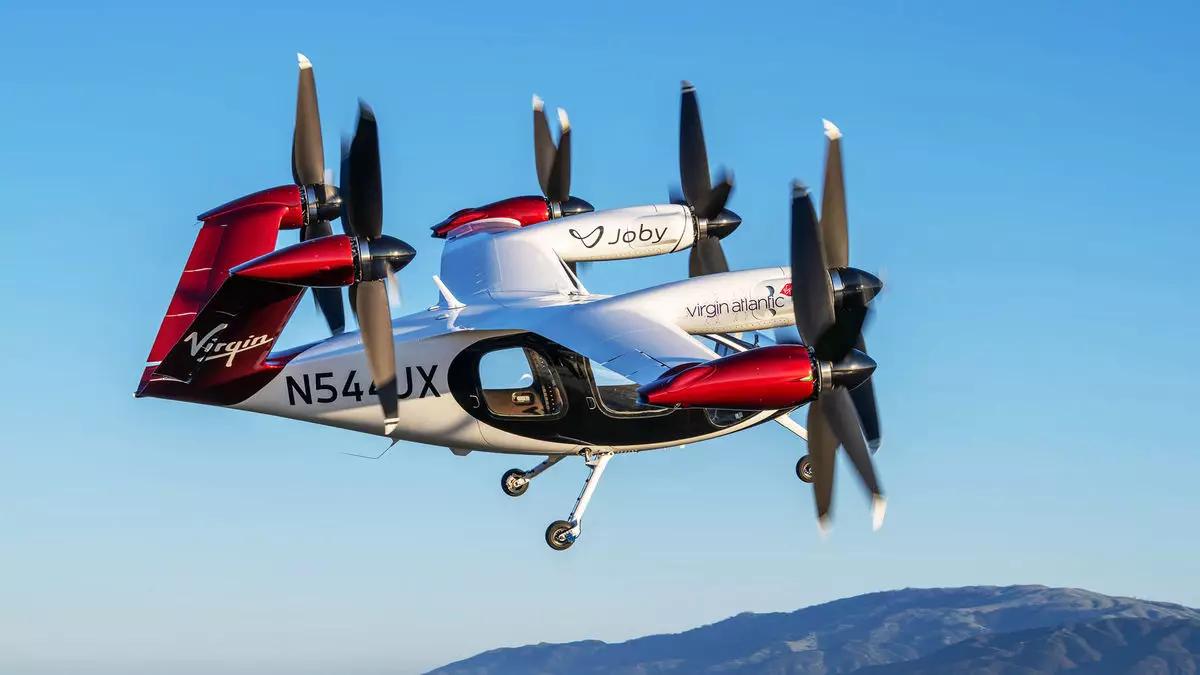Virgin Atlantic has taken a groundbreaking step by partnering with Joby Aviation, a pioneering force in electric air taxi development based in California. This collaboration is poised to reshape the transportation landscape in the U.K., with an ambitious service set to connect key hubs like London Heathrow and Manchester airports. The air travel industry is at a pivotal crossroads where innovation must meet sustainability, and Virgin Atlantic’s initiative signals a commitment to lead in this new era.
The Rise of Air Taxi Services: A Game Changer in Urban Mobility
Electric air taxis are no longer a futuristic concept; they are a tangible solution to urban congestion and travel inefficiencies. By utilizing Joby’s four-seat aircraft capable of reaching speeds of 200 mph over distances of up to 100 miles, the partnership aims to drastically reduce travel time. For instance, the mere eight-minute flight from Heathrow to Canary Wharf presents a compelling alternative to an 80-minute car ride during rush hour. This drastic reduction not only enhances convenience but also redefines how we perceive localized travel, suggesting that urban mobility might soon take to the skies.
Transformative Potential: Envisioning the Future of Air Travel
The implications of Virgin’s air taxi service extend far beyond mere convenience; they herald a transformation in travel patterns and airport infrastructure. With an extensive network of air taxi routes planned, the partnership encourages the development of vertical landing areas at airports and other locations. This infrastructure evolution is critical for effectively integrating air taxis into existing transportation systems, thereby ensuring accessibility and reducing barriers to entry for potential users. The proactive approach to marketing this service through Virgin’s established platforms aims to seamlessly incorporate air taxis into the customer experience.
Challenges Ahead: Navigating Regulatory Hurdles and Public Acceptance
While the vision is alluring, it is essential to recognize the challenges that lie ahead. Certification processes for such innovative aircraft involve meticulous scrutiny from aviation authorities, and securing public acceptance will be paramount. Potential users must be educated about the safety and reliability of air taxis, given inherent skepticism surrounding new technologies. Virgin’s role in lobbying for supportive regulations and facilitating increased public understanding will be vital in ensuring the success of this venture.
Affordability and Accessibility: Striking the Right Balance
One of the most critical factors in the air taxi’s success will be its pricing strategy. Joby aims to align its fares with existing premium ride-sharing services, balancing accessibility with profitability. This pricing model is necessary to attract a broad consumer base, but it raises questions about the long-term sustainability of such an operation in a competitive market. Virgin Atlantic must tread carefully to ensure that this groundbreaking service is not just a novelty for the affluent but remains financially accessible to a diverse audience.
Virgin Atlantic’s partnership with Joby Aviation exemplifies a forward-thinking approach in the airline industry, one that embraces innovation in a quest for efficiency and sustainability in urban travel. As cities evolve and demand for faster, greener transportation options increases, this venture could set a new standard for air travel, paving the way for a more dynamic, interconnected urban lifestyle.

